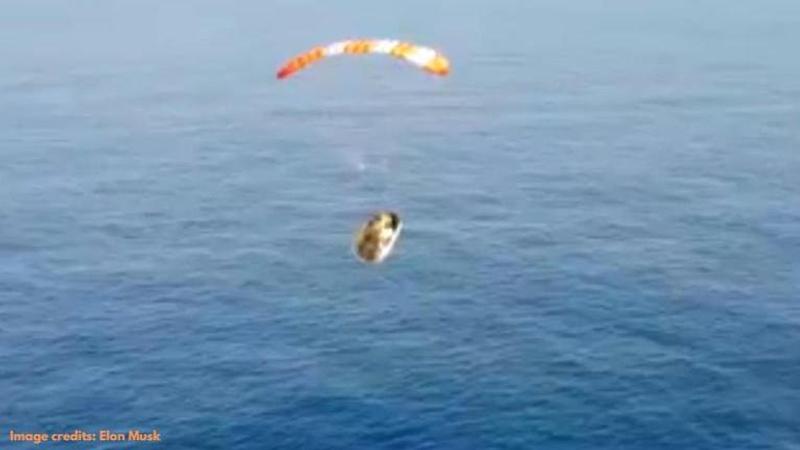Published 13:59 IST, August 20th 2020
Elon Musk's SpaceX recovers Falcon 9 rocket fairing from space with a giant net; watch
Elon Musk’s SpaceX has successfully recovered the Falcon 9 rocket with the help of a gigantic net. Scroll on to check out the video and get more details.

Elon Musk’s private Aerospace company SpaceX was able to successfully catch its Falcon 9 rocket head in the centre of the Atlantic ocean using a large stretched out net which was laid out on top of a moving ship. The rocket was equipped with a big parachute which was used to slow the landing. Elon Musk also shared a short video of the landing on his Twitter handle after the successful Starlink launch mission which took place earlier this week.
Also Read | SpaceX To Launch 58 New Starlink Satellites Into Space; Check How To Watch The Live Stream
SpaceX recovers Falcon 9 rocket
The Falcon 9 rocket was launched by SpaceX as part of the company's eleventh Starlink mission on Tuesday, August 18, at 10:31 AM EDT from the Cape Canaveral Air Force Station, Florida. The Falcon 9 rocket carried 58 new Starlink satellites into the Earth's orbit along with three SkySats from Planet Labs.
It is worth noting that these rocket fairings cost a fairly decent amount of money. However, they are not generally recovered after they are launched into space. As reported by Wired, the Falcon 9 rocket can cost approximately $6 million, which is clearly a huge amount. However, the ability to reuse these rockets certainly makes the launch operations much more affordable and accessible to space companies. The launch mission was using the Falcon 9 first-stage booster which had been used for the sixth time.
SpaceX was able to successfully recover its rocket for the third time in a month which is a major feat for the Aerospace company. As for the Starlink project, the company had already launched a total of 597 Starlink broadband satellites into space as of August 7, 2020, before the latest batch of 58 new satellites.
The internet-from-space initiative appears to be progressing well before the final beta launch in parts of the US and Canada. The constellation project aims to provide low-cost internet service to users. The company has also started inviting people interested in the service to fill out an online form to receive updates on the latest Starlink news and the availability of beta test in their respective areas.
Image credits: Elon Musk
Updated 13:59 IST, August 20th 2020



